The end of 2020 and the start of 2021 have featured a diverse and dynamic collection of cinema-related books. Let’s start with two of these, a biography of director Mike Nichols and an oral history of Dazed and Confused, which qualify as movie-lover must-owns.
Mike Nichols: A Life by Mark Harris (Penguin Press)
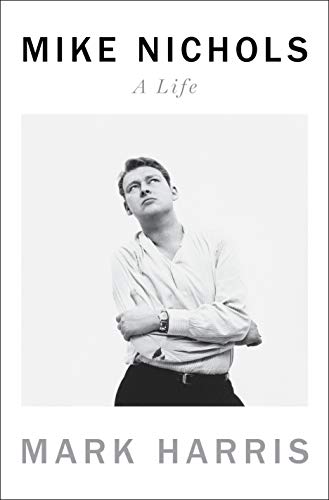
Will there be a finer, more compelling biography in 2021 than Mike Nichols: A Life? I tend to doubt it, as Mark Harris’ study of the career of the Berlin-born, Nichols-and-May comic genius turned Broadway and Hollywood heavyweight rivals the author’s previous modern classics: Pictures at a Revolution: Five Movies and the Birth of the New Hollywood and Five Came Back: A Story of Hollywood and the Second World War. Nichols was the subject of a fine oral history in 2019 (covered here), but A Life adds extraordinary levels of detail. There are moments that are simply unforgettable. These include the comment that ended his working relationship with George C. Scott (“Slap on your wig and get your ass down here,” Scott coldly told Nichols, who always felt vulnerable about his hairpiece), and the moment Nichols realized that Catch-22 was doomed to be overshadowed by Robert Altman’s M*A*S*H. Moments like these make the book that rare bio in which the reader truly feels as if deep intimacy has been developed with a complex figure. It is, without question, a masterpiece. For more on the book, check out The Film Stage contributor David Stewart’s recent interview with Harris. As the author told Stewart, “[Nichols] was profoundly collaborative, was genuinely interested in writers, actors, in working with other people together to create something, and who followed his passion for the work itself and particular pieces of material. … It’s very moving to me that Mike lived his entire career that way.”
Alright, Alright, Alright: The Oral History of Richard Linklater’s Dazed and Confused by Melissa Maerz (Harper)
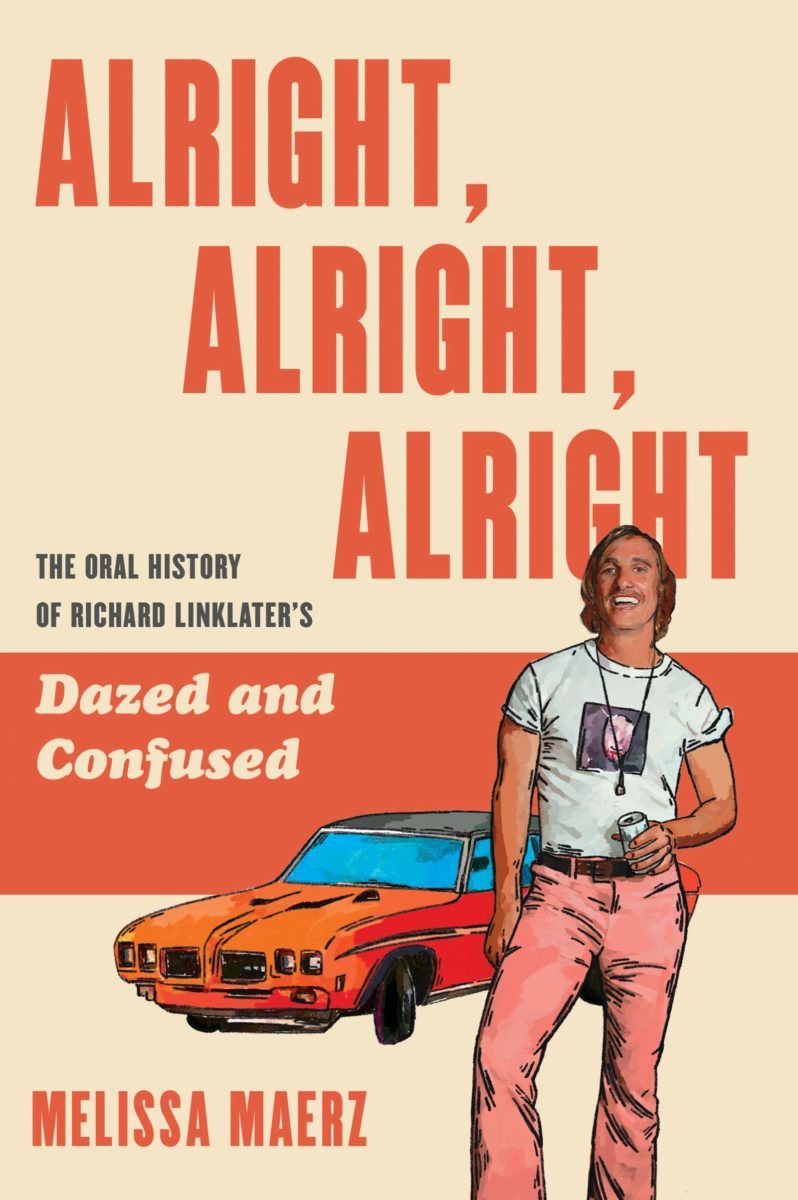
A writer friend and I often discuss the merits of oral histories, and Alright, Alright, Alright: The Oral History of Richard Linklater’s Dazed and Confused is a perfect example of why this genre can be such a delight. Considering the cast of Linklater’s 1993 classic, that should come as no surprise. Released at the tail-end of 2020, Alright is a genuine joy to read. The memories of Parker Posey, Matthew McConaughey, Wiley Wiggins, and the rest are funny and illuminating. But no one captures the film’s vibe quite like the director. As Linklater explains, he knew Universal would not understand what it had on its hands––and that knowledge defined how he acted before its release: “I’d already made up my mind: If the ship was gonna sink, I was gonna go down on top.” Linklater, of course, had the last laugh, as the box office flop became a cult fave. Maerz captures it all in this wonderful book.
The Secrets of Tenet by James Mottram (Insight Editions)
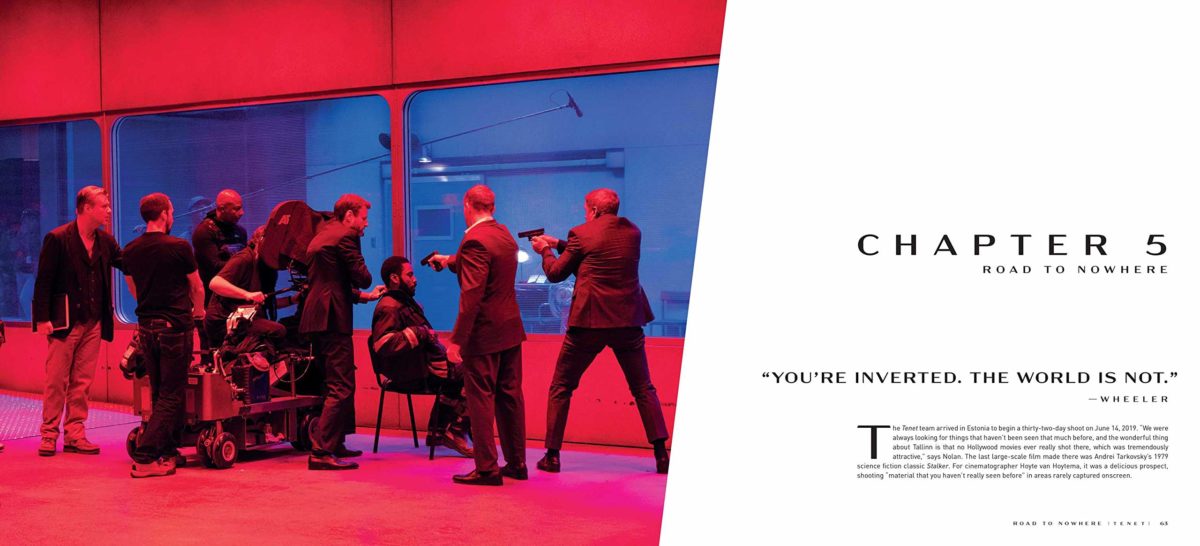
Ideally, one picks up Tenet on 4K and then follows it up with The Secrets of Tenet. I found, while watching the film at home a few months after seeing it on the big screen, that despite its visual grandeur, my couch was a fine place to watch thanks to subtitles. (I know, blasphemy.) Even better was watching it and then reading Mottram’s book. Subtitled “Inside Christopher Nolan’s Quantum Cold War,” the text is both a making-of and an analysis of its director’s goals. As his longtime first assistant director, Nilo Otero, puts it, “It’s like Inception but complicated.” It is also worth noting that the disc features a comprehensive making-of doc titled “Looking at the World in a New Way.” Nolan’s latest is complex enough to demand multiple takes on its creation and themes.
The Cinema of Survival: Mad Max: Fury Road by Matt Brown
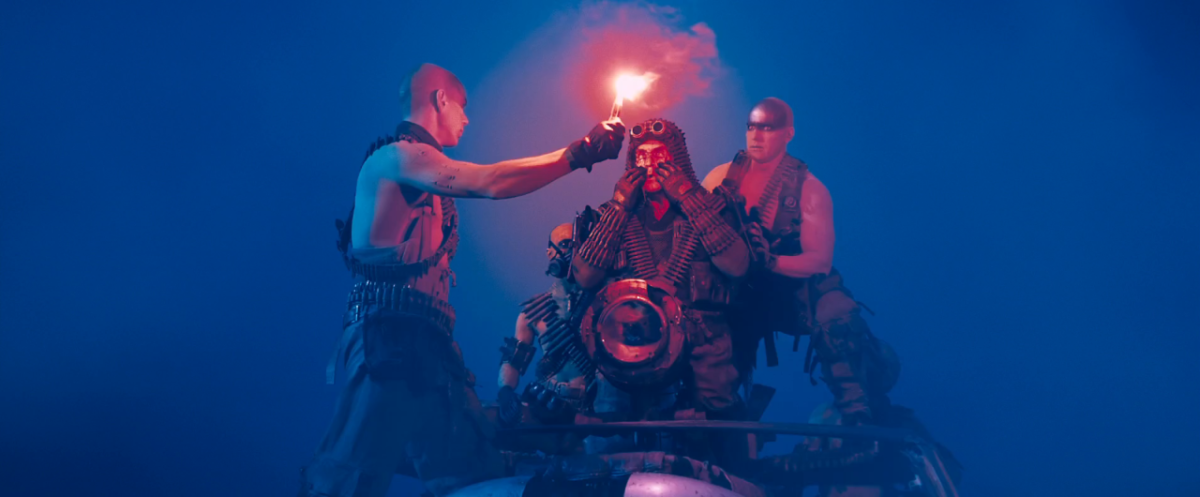
George Miller’s Mad Max: Fury Road is a film that warrants re-watching and analysis. In addition, it deserves the passion and intelligence of filmmaker and critic Matt Brown. In the essay collection The Cinema of Survival, Brown articulates why the film means so much to him, and why, above all else, it is an exploration of trauma and, ultimately, survival. “It is a whole-body, all-senses experience of cinema,” Brown writes. Nine of the book’s twelve essays tackle Fury Road, while three others study Waterworld, Gravity, and Wild. In Fury, Brown finds “some kind of redemption.” In this deeply felt book, so does the reader.
The LEGO Movie (21st Century Film Essentials Series) by Dana Polan (University of Texas Press)
My household includes a LEGO-mad 10-year-old, and for him, the release of The LEGO Movie was a certifiable cinematic event. The LEGO films that followed––Batman, Ninjago, The LEGO Movie 2—all had their moments, but the impact of the original was never equaled. Author Dana Polan’s entry in the University of Texas Press 21st Century Film Essentials Series nails much of what makes Phil Lord and Chris Miller’s blockbuster so smart. As Polan puts it, “Through irony, and through projecting savvy self-awareness and knowingness about the ins and outs of the culture industry while still delivering the goods of dynamic diversion, The LEGO Movie stands apart.”
Three clever, funny cultural studies
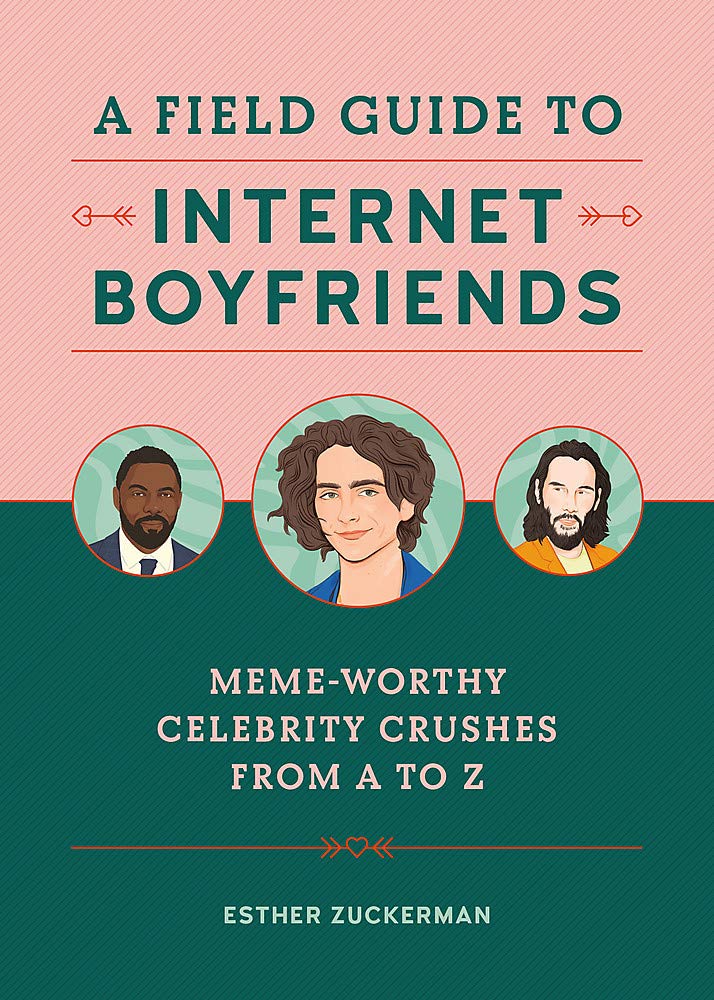
A trio of recent books manage to be both laugh-inducing and smartly focused. The always insightful Esther Zuckerman’s A Field Guide to Internet Boyfriends: Meme-Worthy Crushes From A to Z (Running Press) breaks down a very unique phenomenon. “[A]n internet boyfriend is someone who gets almost entirely good press, who either gives zero fucks or just the right number of fucks, who seems like the type of person you would probably want to get to know and definitely want to date.” In addition to your Chalamets and Elbas, Zuckerman’s list also includes the much-loved Keanu Reeves.
The John Wick star is seen as both a guru and icon of positivity in Chris Barsanti’s What Would Keanu Do? (Media Lab Books). Subtitled “Personal Philosophy and Awe-Inspiring Advice from the Patron Saint of Whoa,” the book explores the star’s life and films, and features some killer Keanu anecdotes; did you know he paid for breakfast and lunch for the crew of Chain Reaction nearly every day? Keanu has not yet appeared in a film by Wes Anderson, but I’d like to think it is in the cards.
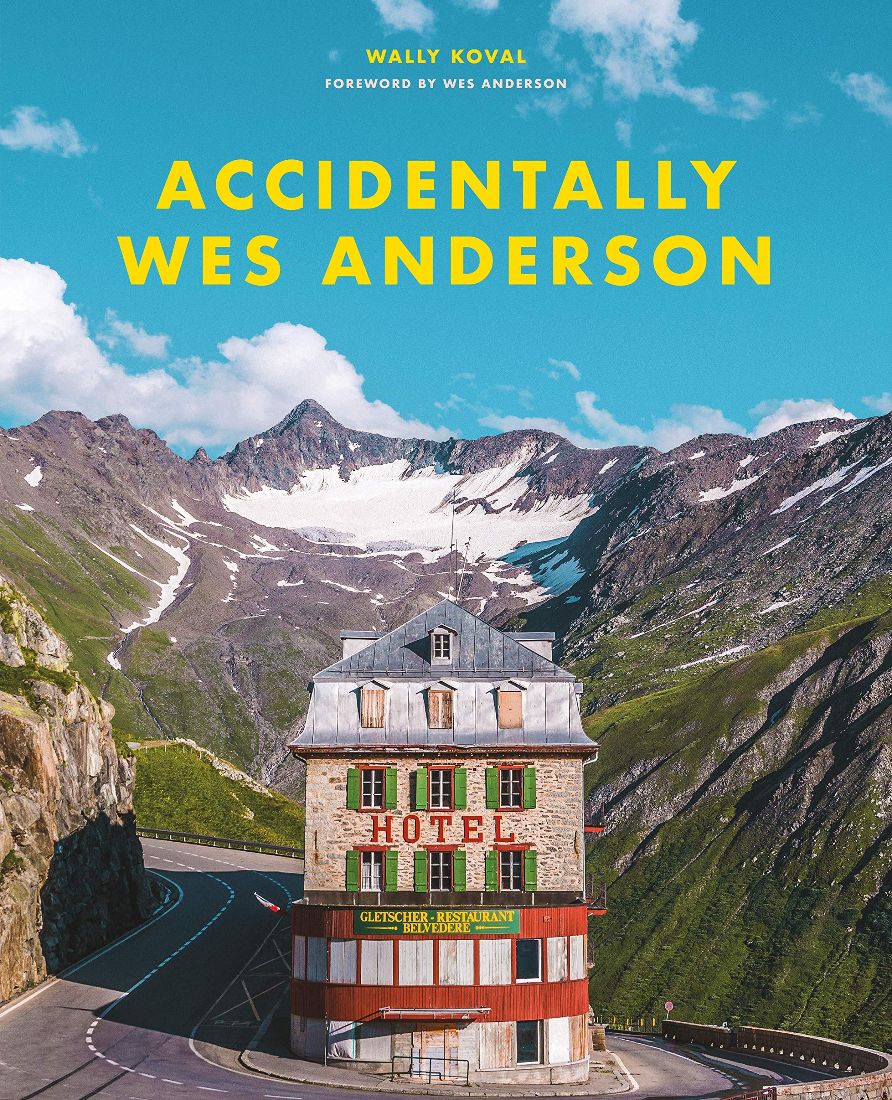
Speaking of the director of The Royal Tenenbaums and Grand Budapest Hotel, Wally Koval’s Accidentally Wes Anderson (Voracious) is positively delectable. It is a 350-page photo collection of real-life places that––yes––look like they belong in a Wes Anderson film. (My favorite is a bowling alley in northern Italy.) Anderson himself contributes a good-natured foreword. His thoughts include this gem: “I now understand what it means to be accidentally myself. Thank you.”
New Star Wars books, from Mando to the High Republic
Even by Star Wars publishing standards, the end of 2020 and first few months of 2021 have been extraordinarily prolific. The latest behind-the-scenes companion from the great Phil Szostak, The Art of Star Wars: The Mandalorian (Abrams) is the concept art/making-of compilation fans have been waiting for. As usual, the design concepts are both a unique look at how the show came to be and a glimpse of some alternate paths. The “High Republic” publishing event has been fun to watch, and the first two releases in this series set during the Jedi golden age are winners. Star Wars: The High Republic: Light of the Jedi (Del Rey) by Charles Soule is for older readers, while Star Wars: The High Republic: A Test of Courage (Disney Lucasfilm Press) by Justina Ireland is for younger fans. Both are brisk, entertaining reads that explore a fresh era. Completely different but also enjoyable is I Love You. I Know. Lessons in Love and Friendship (DK) by Amy Richau, a relationship guide rooted in all things Star Wars. And lastly, Star Wars: Victory’s Price (Del Rey) by Alexander Freed continues the author’s entertaining post-Return of the Jedi “Alphabet Squadron” series.
Illustrated guides and art deep-dives
Every column features new books that serve as either an illustrated accompaniment to a character and his or her world, a film, or a series, while others highlight the work of a noted artist. Falling into the first category is Exploring Gotham City: An Illustrated Guide (Insight Editions), written by Matthew K. Manning with illustrations by Studio Muti. It is a delightful, kid-friendly trip through the nooks and crannies of Wayne Manor and each level of the Batcave, along with Gotham go-tos like Arkham Asylum and the effectively named Crime Alley. DC: Collecting the Multiverse: The Art of Sideshow (Insight Editions) by Andrew Farago is for older fans, some of whom may already collect Sideshow’s intricately designed figures of DC favorites. Outside of the world of DC, the making of a recent Netflix animated gem is documented in Over the Moon: Illuminating the Journey (Titan Books), a lovingly illustrated book most noteworthy for its author: the esteemed critic and longtime animation expert Leonard Maltin. And Star Trek: The Artistry of Dan Curry (Titan Books) by Curry and Ben Robinson is a terrific study of the Emmy-winning designer’s visual effects, weapons, and more from The Next Generation and Enterprise.
New and reissued novels
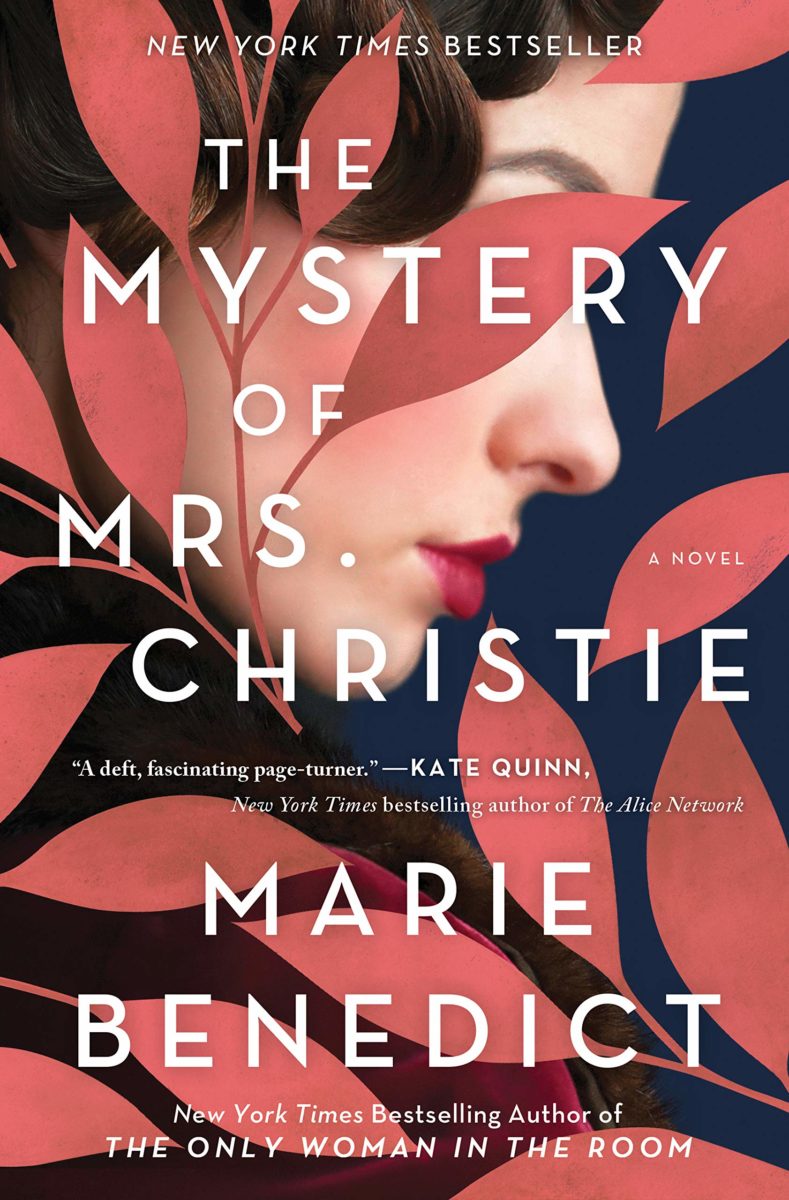
There simply has to be a film version of The Mystery of Mrs. Christie by Marie Benedict (Sourcebooks Landmark) in the works. The author’s study of the mystery novelist’s strange, headline-making disappearance in 1926 is compulsively readable. This is historical fiction at its finest––packed with research, written with verve. Fans of Ernest Cline’s nostalgia-fueled Ready Player One are likely to adore Ready Player Two (Ballantine Books), a sequel with numerous echoes of the original, and just as many pop references. (Those who did not enjoy the first go-round are urged to stay away.)
And five tie-ins to recent or upcoming releases are also worthy of mention here. Barry Jenkins’ take on Colson Whitehead’s The Underground Railroad (Anchor Books), a well-deserved Pulitzer Prize-winner, will soon stream on Amazon. Walter Tevis’ The Queen’s Gambit (Vintage) is even more compelling than the Netflix smash. Chris Bohjalian’s The Flight Attendant (Vintage) was the basis for Kaley Cuoco’s surprise HBO Max hit. Coming soon to theaters is a well-cast adaptation of Joanna Rakoff’s charming My Salinger Year (Vintage). And lastly, Stephen King’s mighty The Stand was recently brought to life in a CBS All Access series. The series drew a mixed response; perhaps there is no matching King’s masterful pandemic epic.
New to Blu-ray
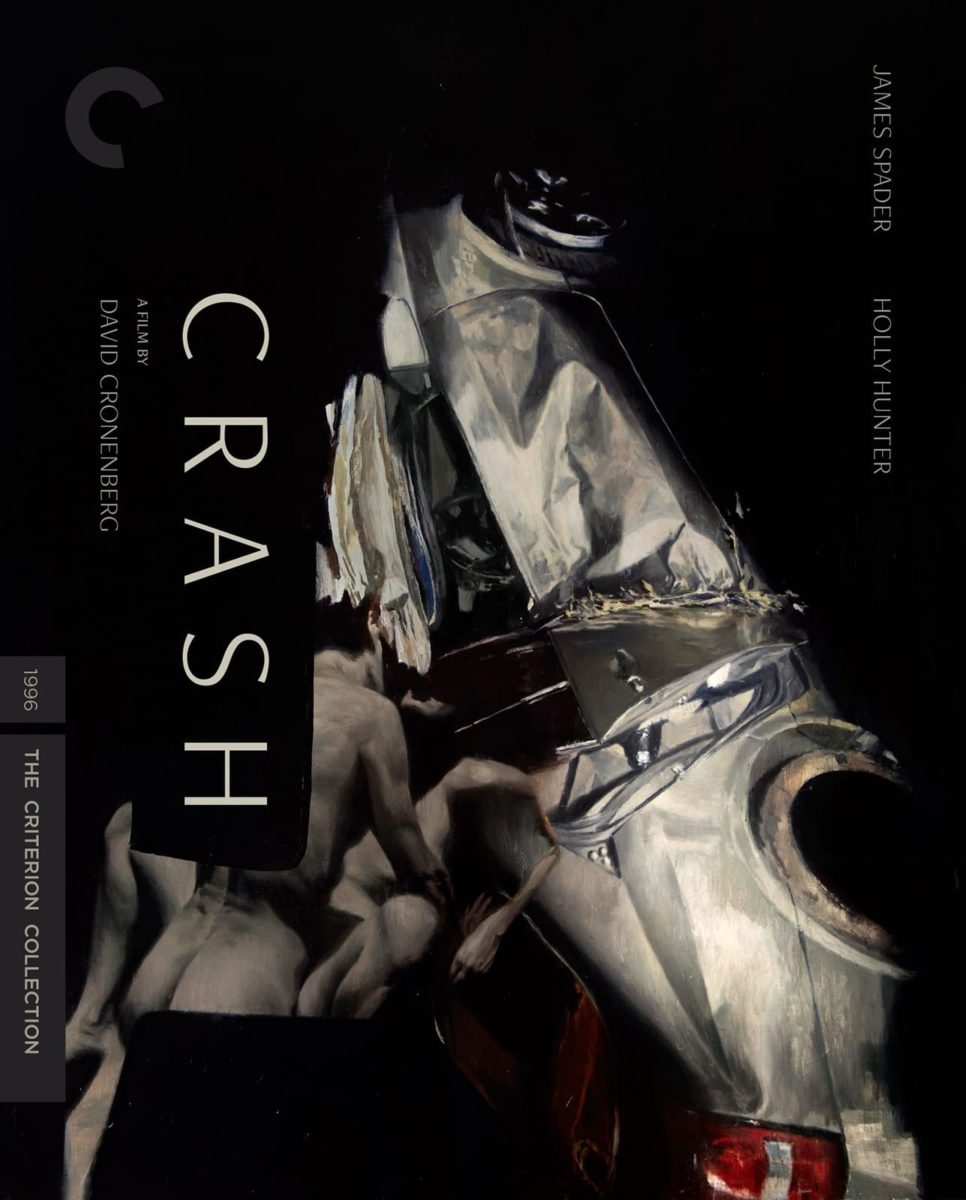
David Cronenberg’s Crash arrived on the Criterion Collection in December, and this was a momentous occasion. His magnificent Ballard adaptation seems to pack even more of a wallop in 2021 than it did in 1996—although its controversies seem to have quieted a bit. Jessica Kiang’s booklet essay astutely sees how Cronenberg’s creation outlasted the prurient voices that sought to incite panic. Eventually, she finds, “Crash the novel and Crash the film (which Ballard, incidentally, adored), were rehabilitated to the point that each now occupies a central position in its creator’s body of work.”
The booklet for another Criterion release, Rolling Thunder Revue: A Bob Dylan Story by Martin Scorsese, features writing from the late Sam Shepard and Allen Ginsburg, along with a new essay from the novelist Dana Spiotta. She makes note of Dylan’s “embrace of the theatrical” during that era of his career, while also identifying Scorsese’s realization that “it all matters only because of the performances.”
And two new Kino Lorber releases—1979’s original Mad Max and 1995’s The Underneath—also merit discussion. The former has never looked better than it does in 4K, and the disc features a plethora of features, most notably a new interview with director George Miller. And the latter, one of Steven Soderbergh’s least-heralded efforts, is also one of his most underrated. This new release of his heist film starring Peter Gallagher features a nicely illuminating commentary from film historian Peter Tonguette.
Coming Soon
Watch for our next column soon, featuring even more new and recent released, including a biography of Stan Lee; collected interviews from Kasi Lemmons and Peter Weir; and two new ebooks––critic Scout Tafoya’s look at the work of Tobe Hooper and, from the Seventh Row team, an exploration of fiction directors like Chloé Zhao, Haifaa Al-Mansour, Joanna Hogg, Kelly Reichardt, Yorgos Lanthimos, and Céline Sciamma.
